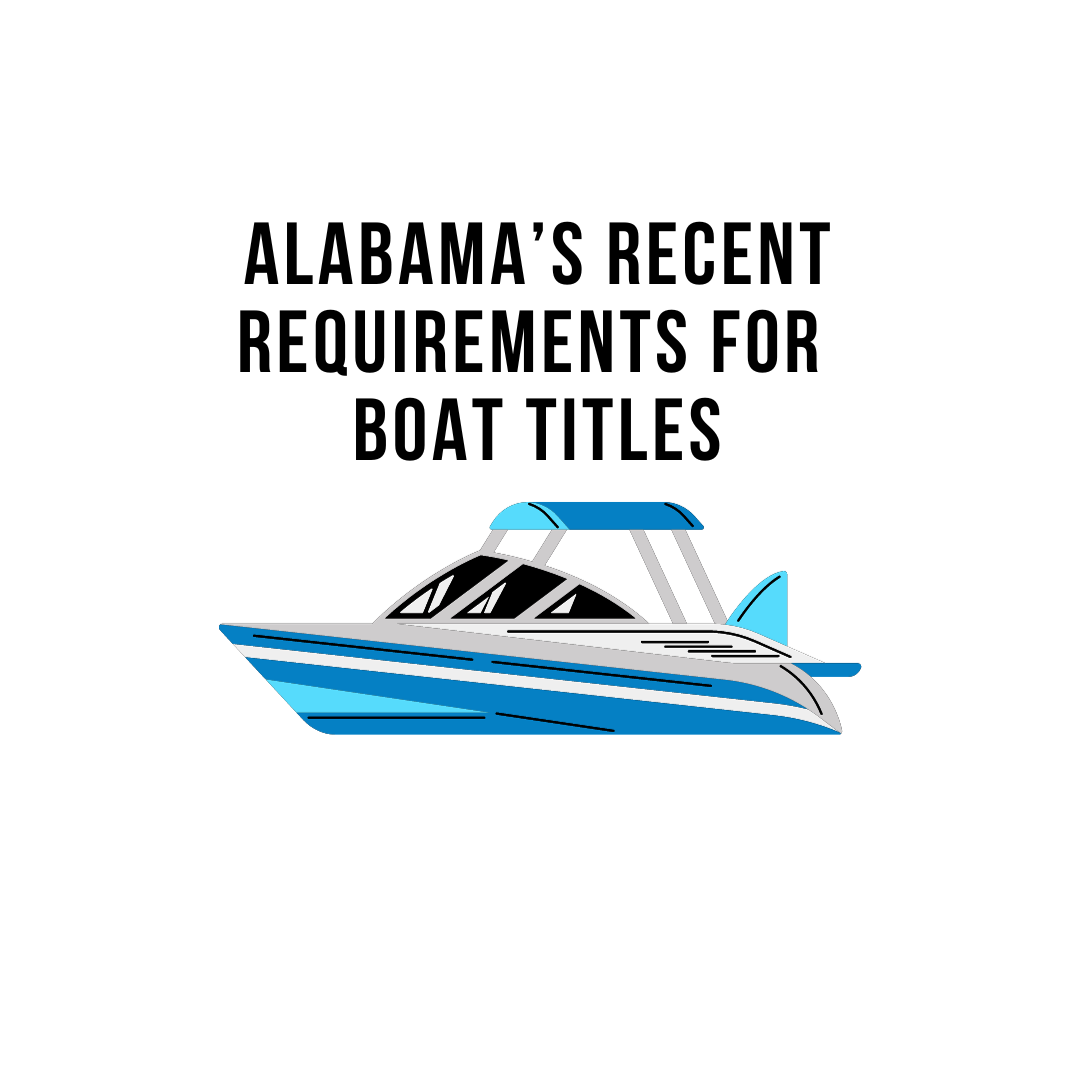Alabama, renowned for its diverse and scenic bodies of water, has been the hub of recreational and commercial boating activities for centuries. However, a novel legislative measure is causing ripples among the state’s boating community. As of recently, Alabama now requires titles on certain types of boats. This new requirement, aimed at regulating and ensuring the safety and legality of boating activities, has its implications for Alabama’s maritime population.

Understanding the Requirement
Previously, the Alabama law only necessitated registration for boats. However, the updated legislation, Alabama Act 2023-__, now mandates titles for certain classes of watercraft. The requirement applies to boats that are at least five years old, 28 feet or longer, and those classified as “homemade boats.”
The updated legislation was borne out of a pressing need to ensure boating safety and prevent illegal activities. It is designed to establish a clear line of ownership for boats, thereby reducing the chances of fraud, theft, and disputes over ownership. Boat owners can now easily prove ownership of their vessels through an official title, making transactions such as selling, buying, or using the boat as collateral, more secure and straightforward.
Implications for Boat Owners
For boat owners, the new law means additional paperwork and, in some cases, extra expenses. The law requires the owners to present their boats for inspection by the Marine Police Division before obtaining a title. However, these additional steps are expected to bring more advantages than disadvantages.
The enhanced process will ensure that the boats meet safety standards and are seaworthy, which could lead to decreased boat-related accidents and improved overall safety on the waterways. Additionally, having an official title will offer increased protection to boat owners. The ownership of boats will be clearer and more easily traceable, thus reducing the likelihood of legal disputes over boat ownership.
Moreover, the requirement for boat titles will likely have positive effects on boat transactions. The clear documentation of ownership and boat details will facilitate smoother and more secure sales and purchases of boats, likely boosting the marine economy in Alabama.
Understanding the Inspection Process
To secure a boat title, boat owners need to subject their vessels to an inspection process by the Marine Police Division. This process aims to ensure that the boat is not stolen and complies with all safety regulations. The officers inspect the boat’s hull identification number (HIN), check the overall condition of the boat, and verify that it has the necessary safety equipment, such as life jackets, fire extinguishers, and navigation lights.
Critiques and Controversies
Despite its many advantages, the new requirement has not been without controversy. Some boat owners argue that the regulation is overly bureaucratic and burdensome, especially for owners of smaller or older boats that might not have previously needed such stringent documentation.
Others express concerns about the cost implications, particularly the costs associated with inspections and obtaining a boat title. These concerns, although valid, are balanced by the proponents who argue that the long-term benefits, such as improved safety and legal clarity, far outweigh the initial costs and inconveniences.
Conclusion
The recent changes to Alabama’s boating laws signify a significant shift in the state’s approach to regulating boating activities. The newly introduced requirement for boat titles will provide clearer and more secure boat ownership, potentially enhancing the safety of the state’s waterways and contributing to a more robust marine economy.
Although the implementation of the law has sparked debates and criticisms, the underlying purpose remains noble: to ensure the safety and security of Alabama’s maritime community. Like navigating through uncharted waters, it may take time for Alabama’s boaters to adjust to this new law. However, with adaptation and proper implementation, these changes promise to make Alabama’s waters safer and more secure than ever before


